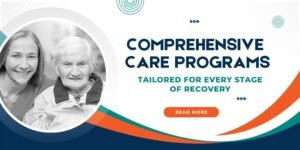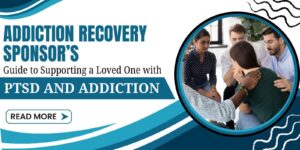Can you imagine that a whopping 15% of people aged 12 and above suffer from addiction or substance use disorder? Addiction is a real issue that has been affecting not only the lives of people who indulge in it but also the lives of their loved ones. It is a real problem that needs immediate attention.
It is important that people who suffer from addiction receive the right kind of guidance as well as support. This will help them navigate and finally overcome their problem. An addict struggles through myriad emotions such as anger, sadness, and anxiety and if their needs are understood the problem can be resolved.
There are some clear-cut symptoms of alcohol and drug addiction. Recognizing the symptoms enables you to help a loved one to overcome addiction in the best way possible. Addiction impacts all aspects of an individual’s life- emotional, psychological, physical, and relational.
Mentioned below are some symptoms of alcohol and drug addiction:
- Changes in sleep pattern
- Lack of confidence or over-confidence
- Suicidal Talks
- Depression and Anxiety
- Crying Spells
- Hysteria
- Irritability
- Lack of interest in things
- Violent arguments
- Isolation
- Problems in Holding Conversations
- Sudden Problems in Relationships
- Distancing from Old Relationships
- Skipping meals
- Absenteeism
- Runny Nose or excessive sniffing
- Poor Sexual Function
- Lack of coordination
- Red Eyes and Dilated Pupils
- Cuts and Bruises on Body
These are a few of the symptoms of alcohol and substance abuse. If you notice such symptoms in any person around you; it is quite possible that he or she might be suffering from alcohol and substance addiction. The sooner you identify the symptoms of alcohol or drug abuse, the likelihood of a person coming out of it becomes brighter.
Our navigators will help you take back control of your life.
When you call our helpline, an admissions navigator is there to listen to you, answer any questions you have, and provide the support that you need—all 100% confidentially.
Addiction recovery is not a single person’s job. An addict needs constant support and encouragement from his/ her close ones to get out of the problem. Apart from medication, serious cases need rehabilitation programs and counseling.
Research has proved that addiction has a huge impact on the brain functions of the addict. The surge in dopamine levels propel a person to repeat the intake of drug or alcohol, so coming out of the addiction is not a cakewalk.
When a loved one chooses to start drinking or using drugs, it might seem like a choice rather than a necessity in the beginning. But, over time it becomes tough and in some cases even impossible to come out of it. Thus, it becomes pertinent to help your loved one with addiction recovery if he/ she is on the path to attain the same.
Rendering physical, mental, and even financial support to a loved one who is trying to come out of addiction is required. Alcohol and substance abuse is a very serious problem and should be tackled as a unit if you want your loved one out of it. It is a chronic disease that requires a combined effort.
In many cases, it is seen that a person might want to quit but might fail at his/ her effort. Addiction is a complex problem that needs comprehensive treatment and care. If you wish to help a loved one with addiction, the first step that you can take is to educate yourself.
Drug addiction can have a serious impact on your relationship at home and work. An addict is highly likely to neglect his/ her responsibilities and this can lead to a lot of stress and tension both at home and at work.
In many cases, it is seen that the partner of a drug addict feels angry, hurt, and betrayed. This can have a devastating impact on the relationship and some people even break all their ties with the addict.
In case a child is battling with addiction, the parents seem to go through a lot of trauma and suffering. Drug addiction is a complex but treatable problem. Recovery is possible but it calls for a lot of time as well as effort not only on the part of an addict but also his/ her family.
Codependency is a huge element of a relationship with an addicted person. This is because the lives of family members start revolving around the life of the addict. Codependency has a detrimental impact on both the addict and his/ her loved one. In such a scenario the codependent people enable the behavior of an addict as they rely on them to render them self-esteem. This is seen more in married women than in men.
- Fear of abandonment
- Poor self-esteem
- Difficulty in refusing
- The continuous need for approval
- Feeling of guilt
- Provide more in a relationship than what is reasonable
Co-dependent people do not have wrong intentions. They are trying to take care of the addict, but they fall into a trap by offering more than what is required and in a way enabling the actions of an addict.
Check to see if your insurance is in-network at an American Addiction Centers location
We’ll instantly check the coverage offered by your insurance provider.
It is not easy to deal with a family member with addiction. In many cases, family members end up being enablers as they are not able to draw a line between what is helpful and what is not needed. If a person who is addicted does not have to face the consequences of his/ her action, he/ she will not be able to get out of them.
It is important to bear the brunt of the problem if you want freedom from it. Co-dependency leads to a host of other problems such as self-neglect, losing relationships with other people, poor health, etc Even though it is vital to offer help to your loved one, enabling leads to serious outcomes. So, it is important that the addicted should come in terms with reality and face the outcomes of his/ her addiction.
There are certain things that a person should definitely avoid when dealing with an addict. Never encourage or shame an addict as this can lead to serious outcomes. Addiction does not have an easy solution and it is important that such a fact is brought to light by an addict. This will deter him/ her to continue the habit and he/ she will take steps to get rid of the same.
Addiction should never be ignored. When you turn a blind eye towards a loved one who is hooked on alcohol or other substance, you are in a way encouraging the use of such substances. Such kind of behavior should be avoided in all circumstances. Instead, the addicts should be given an ultimatum to get rid of the problem at the earliest.

It is quite challenging to help a person struggling with addiction. Addiction is accompanied by denial. In many cases, a person might refuse to admit that he/ she is hooked on drugs or alcohol. This makes it very hard to extend help.
Another big challenge is that an addict might become very reluctant to change. The fear of withdrawal can makes things even worse. Also, in a lot of cases, the behavior of family members might enable addiction. The covering up behavior or offering financial support will be a huge deterrent and will not let a person come out of addiction.
Also, as addiction is a chronic condition, the chances of relapse are huge. Addiction also takes a mental and emotional toll on a person who happens to be the loved one of an addict.
So, these are some of the challenges that are faced by an addict.
Intervention is a structured process that aims at helping a person recognizes his/ her addictive behavior. It encompasses a carefully planned meeting where the person who is battling the problem, family members, and a professional interventionist comes together to express concerns and offer support and encouragement to an addict to seek the treatment.
In such a program the person who is an addict is made to realize the impact of his/ her problem on people that are close to him/her. Even though the process is not easy, it is vital that it is done so that both the addict and his/ her family members get a way out of the problem.
It is hard to send your loved one to rehab. But, if that is important, it should be done as this means your loved one will get the necessary help and this will enhance his/ her chances of coming out of the problem.
Addiction is a chronic problem, so it cannot be resolved in a day. Sometimes the rehab process also fails. But, the real failure is when you stop trying. Taking your loved one to rehab is just making sure that he/ she is on the path to recovery. There is no one sure shot approach to deal with addiction. What might help one person might not lead the same results for the other.
It is vital that the way the message is delivered to the addict is very considerate. An addict should be treated with empathy because he/ she deserve help and not any kind of anger or hatred.
The hardest thing to tackle is addiction when it comes to your loved one. It can be a spouse, a child or even a parent. Not only does the addict bear the brunt of his/ her, the people close to him/ her are also at the receiving end. If you wish to come out of the problem, a collaborative approach is must.
When there is lack of proper approach to tackle the problem, right outcomes will never be achieved. So, it is of utmost need that not just the addict but also the family members word in tandem so that the treatment for addiction leads to positive outcomes. When a person close to you is in treatment, you must render complete support and care. This offers the much needed confidence to navigate their path to recovery.









